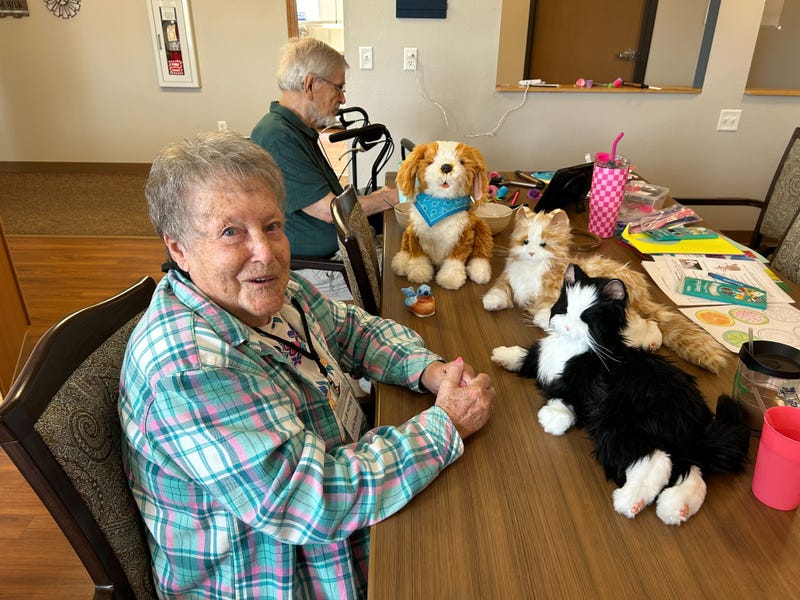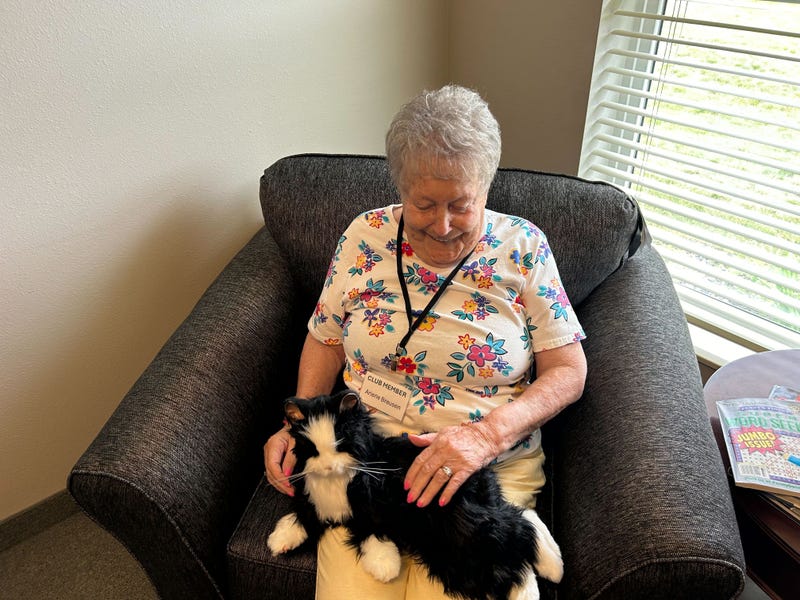
Robotic pets are becoming a helpful tool in nursing homes and at one care facility they're changing the lives of residents.
The robots have become an increasingly popular form of therapy as they transition into more permanent care facilities. Senior Resources Director at Horizon Health, Kristine Hoheisel says the program has had an incredible impact on their residents in Little Falls, Minnesota.
"If you felt them, you can feel their heartbeat, they move and everything," Hoheisel told WCCO Radio's Taylor Rivera. "They're so real. Like, we've had a lot of caregivers that they can't, the care receiver doesn't want to leave home because they're tied to their animal. So if they're moving them into a facility or something like that, they're really struggling with it. So that's another place where we can introduce the cat at the home."
What sounds like science fiction is actually rooted in research that shows animatronic pets such as cats and dogs can have the same benefits for Alzheimer’s and dementia patients without worrying about the day-to-day care and needs of a real pet.
Researchers have found that robotic pets decrease anxiety and stress and reduce the need for psychoactive and pain medications in patients with dementia.
Horizon Health resident Arlene Brausen says her robo-cat Friskie is a slice of home.
"Makes me think of home I guess," Brausen said. "I know she's not real, you know, but happy to have her."

Brausen says Friskie has had a big impact on her after transitioning from in-home respite care.
"I love pets. I got an old granny at home but she never had kitties and, I don't know, I just love to talk to him and pet him," Brausen explains. "She rolls over and everything, you know. And I know she's not real. I know it helps a lot."
The Central Minnesota Council on Aging recently awarded Morrison County a grant to purchase 17 pets for aging residents and their hope is that the program will expand across the entire state.
Even insurance companies such as Blue Cross see the benefit in animatronic pets, and even offer them as a supplemental benefit for certain diagnosis.
“These pets show a great deal of promise for both mental and physical health outcomes, not just for Alzheimer’s and dementia patients, but for their caregivers and community care providers as well,” says Dr. Amy Fendrich, senior medical director at Blue Cross and Blue Shield of Minnesota.
